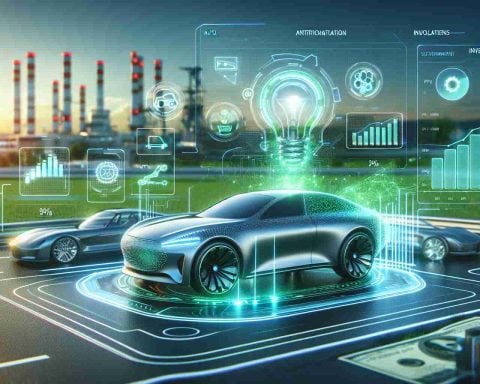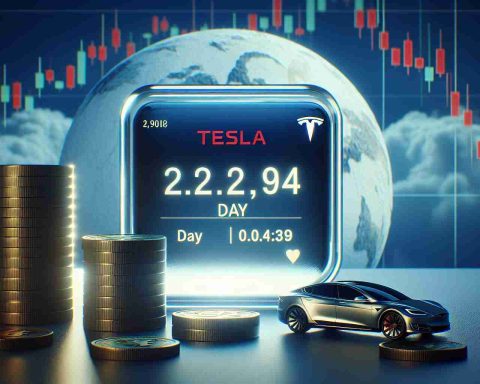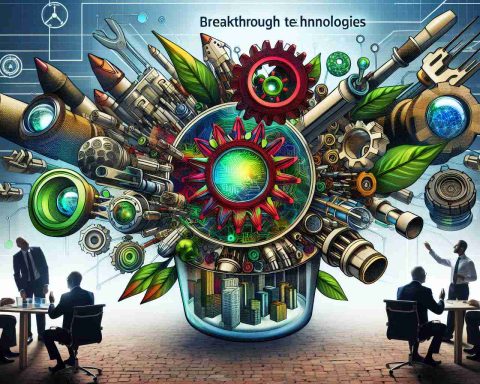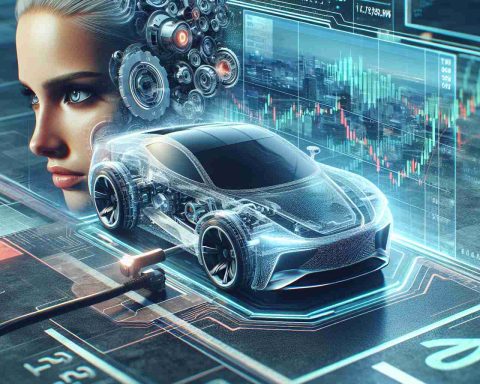When two titans find common ground, the world takes notice. In a surprising twist, JPMorgan Chase’s CEO, Jamie Dimon, publicly commended Elon Musk, the CEO of Tesla and SpaceX, comparing him to the iconic physicist Albert Einstein.
At the recent World Economic Forum in Davos, Switzerland, Dimon characterized Musk’s groundbreaking innovations in technology and space travel as revolutionizing industries, akin to the upheaval caused by Einstein’s theories in physics. This statement marks a significant shift in the relationship between the two billionaires, who previously had a tumultuous history primarily due to a high-profile legal dispute.
The conflict began in 2021 when JPMorgan filed a hefty $162 million lawsuit against Tesla, which both parties eventually dropped by late 2023, thereby paving the way for reconciliation. Tensions had escalated to the point where Musk famously expressed his frustration in court, leading to speculation about their ongoing rivalry.
However, during his recent remarks, Dimon revealed that the two had reconciled at a conference, where they shared a cordial exchange that lasted over an hour. He humorously noted that they “hugged it out,” indicating a newfound level of respect between them.
With Musk’s staggering $433 billion net worth compared to Dimon’s $2.7 billion, their collaboration could yield significant benefits for both their enterprises. This unexpected turn of events highlights how rivalry can be transformed into mutual respect and collaboration in the world of business.
Beyond the Boardroom: Implications of Musk and Dimon’s Reconciliation
The recent reconciliation between Jamie Dimon and Elon Musk not only reshapes their personal dynamics but also sends ripples through global industries and influences cultural narratives. As two leading figures in finance and technology converge, their collaboration could foster innovative partnerships that propel advancements in AI, renewable energy, and space exploration. Such alliances not only have the potential to drive economic growth but also to inspire a new wave of entrepreneurial spirit among younger generations, who are increasingly drawn to the intersection of technology and sustainability.
Moreover, the shift in their public narrative underscores the need for cooperation amidst competition, an essential lesson as businesses face complex challenges such as climate change and economic inequality. This emerging camaraderie highlights a broader trend where traditional powerhouses are seeking synergies with disruptive innovators, potentially transforming corporate cultures to be more inclusive and forward-thinking.
Of critical importance are the environmental implications of their collaboration. With Musk’s commitment to green technology through Tesla and Dimon’s influence in finance, there’s a robust platform for accelerating investments in sustainable initiatives. Such endeavors could lead to substantial reductions in carbon footprints across industries.
Ultimately, the Dimon-Musk relationship serves as a case study in the evolving nature of leadership, where open dialogue and collaboration can harness individual strengths for collective progress. As the world contemplates the future, these titans’ unexpected alliance may signal a shift towards more sustainable, innovative economic models.
Unexpected Alliance: How Jamie Dimon and Elon Musk are Changing the Business Landscape
A Transformative Relationship
The recent kindness between Jamie Dimon, the CEO of JPMorgan Chase, and Elon Musk, the CEO of Tesla and SpaceX, signals a notable evolution in their professional relationship. Once embroiled in a high-profile legal dispute, Dimon has now publicly praised Musk, drawing parallels to the groundbreaking contributions of physicist Albert Einstein. This dynamic shift took center stage at the World Economic Forum in Davos, showcasing how influential leaders can pivot from rivalry to collaboration.
Insights into Their Reconciliation
The contentious relationship between Dimon and Musk was underscored by a $162 million lawsuit filed by JPMorgan against Tesla in 2021. However, by late 2023, both parties dropped the lawsuit, suggesting a thawing in relations and paving the way for a reconciliatory dialogue. At a recent conference, their exchange lasted over an hour, where Dimon humorously mentioned that they “hugged it out,” indicating a newfound respect that could herald future collaborations.
Features of Their Collaboration
1. Innovation Synergy: The partnership could result in groundbreaking innovations, especially in technology and finance.
2. Industry Disruption: Musk’s ventures in electric vehicles and space travel, coupled with JPMorgan’s financial prowess, could lead to major disruptions across various sectors.
3. Sustainable Development: Both leaders are invested in sustainability, with Musk pioneering electric vehicle technology and Dimon prioritizing responsible banking.
Pros and Cons of Their Alliance
Pros:
– Shared Knowledge: Combining Musk’s innovative mindset with Dimon’s financial expertise may spearhead new initiatives.
– Market Influence: Their collaboration could significantly impact market trends, potentially reshaping consumer expectations.
Cons:
– Strategic Disagreements: Differences in vision or operational approaches may pose challenges.
– Public Perception: Previous tensions might create skepticism among stakeholders regarding the genuineness of their alliance.
Market Trends and Predictions
With this unexpected alliance, market analysts predict a surge in investments directed toward sustainable technologies and financial solutions that enhance innovation. If Dimon and Musk collaborate on projects, sectors like renewable energy, electric vehicles, and space technologies could see accelerated growth.
Conclusion
As two giants in their respective fields begin to navigate a new path together, the implications for industries worldwide are expansive. This relationship transformation highlights a broader trend in the business world: the power of collaboration over conflict.
For more insights on business leadership and technology trends, visit JPMorgan and Tesla.



















